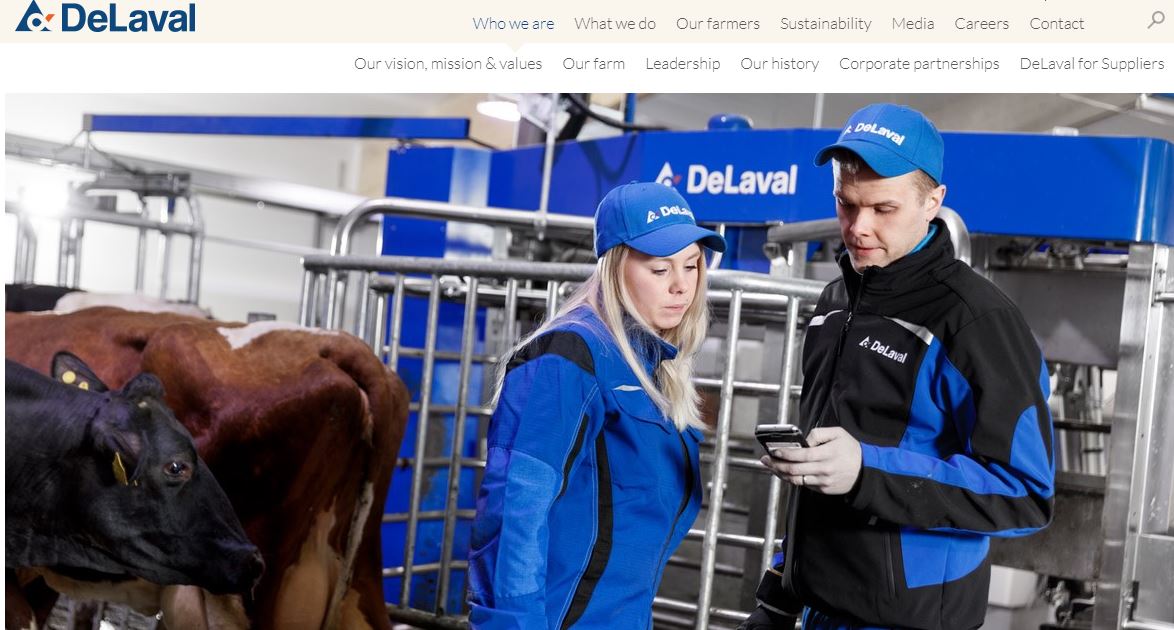Nation that flows with milk and honey


Sha Yunfei fortifies DeLaval's formula to automate dairy farms for growth
As China's consumption upgrade gathers momentum, demand for dairy products, especially fresh milk that is a key source of protein, is rising, prompting domestic dairy farms to ponder ways of increasing their output.
Chinese milking cow herd size dropped rapidly from the peak of 12.16 million in 2005 to 10.38 million in 2018, pressuring dairy farms to operate more efficiently to increase their per-cow production volume.
And DeLaval, the Swedish firm that leads the world's milking equipment and solutions business, is well set to help them attain their goals, said Sha Yunfei, 47, director of DeLaval's operations in China and South Korea.
DeLaval will modernize and strengthen China's dairy farms so millions of consumers could benefit as not all of them prefer imported milk, he said.
According to the China Dairy Association, dairy production reached 30.75 million metric tons in 2018. Dairy products totaled 26.9 million metric tons. Revenue of large-scale dairy enterprises reached 339.8 billion yuan ($49.1 million). While Chinese people's overall dairy demand is foreseen at 50.4 million metric tons by 2020, growing at an estimated 5-percent annual growth rate, domestic raw milk supply may be around 30 million metric tons.
Per-capita dairy consumption in China is 34.3 kilograms per year versus the average of 222.5 kg in developed markets, suggesting there is enormous room for future growth.
The challenge in China for DeLaval, which is part of Tetra Laval Group that also owns Tetra Pak and Sidel, is particularly stiff because 62 percent of the local dairy farms are medium - or large-scale businesses, home to 3,000 to 5,000 cows each, according to China Dairy White Paper, published in July.
Most dairy farms are State-owned, although there are some privately owned or family-run businesses, and foreign-invested firms as well.
Installing heavy rotating milking units in large numbers at each dairy farm is not just a tough financial ask but a logistical and technological challenge.
What's more, automation in the form of use of robots at Chinese daily farms is still far lower than in developed markets.
For instance, DeLaval's automated milking units - voluntary milking system or VMS - are few and far between in China: no more than 20, compared to over 46,000 in the rest of the world.
"Very few of the dairy farm facilities in China are automated. In Norway and the Netherlands, the ratio is over 50 percent, in terms of milk volume produced," said Sha.
An MBA (2000 batch) from Beijing-based Tsinghua University, Sha has made it his mission to help Chinese dairy farmers to raise production, efficiency, reduce costs, and manage any negative impact on the environment. He joined DeLaval in 2016 after serving Royal Dutch Shell, the Anglo-Dutch oil and gas company, for more than 20 years.
He is all excited about the launch last month of DeLaval's new automated milking system VMSTM V300 in Tianjin. The system can improve teat spraying hit rate up to 99 percent, and quicken the attachment time by up to 50 percent. It can also raise milking capacity to more than 3,500 kg per day from 3,000 kg per day.
"It's a facility to help farmers by making them less reliant on future labor market uncertainties and keeping them at the forefront of animal welfare and food safety. The VMSTM V300 ensures that dairy farming is profitable," said Sha.
DeLaval's new system can also allow farmers to control and collect information through their mobile phones. "By doing so, farmers can have a normal family life, normal working hours," Sha said.
One of his friends, Jin Dehua, who owns a dairy farm of 1,500 cows in Shanghai, purchased several DeLaval milking robots a few years ago. His farm uses eight VMS units to milk about 400 cows without human intervention.
At his family-run dairy farm, the system saves on wages and related overheads like hiring costs, Jin said. Jin's son manages the farm through the Smart Farm mobile app. Milk production has increased by about 10 percent, Jin said.
The China market already accounts for 6 percent of DeLaval's global sales turnover of 1 billion euros ($1.12 billion) from more than 100 markets, with the Asia-Pacific region contributing 20 percent.
"China is our important market with huge potential. Our facilities in Tianjin produce equipment and chemicals for the rest of Asia-Pacific markets," said Sha.
"We provide complete and integrated solutions to dairy farms. Our portfolio in China comprises conventional milking systems such as rotary and parlors, milking essentials such as hygiene and animal health products, consumables, original spare parts, services, and farm management systems."
However, getting Chinese dairy farmers to invest in modern technology takes a lot of effort because the farm land is not owned by dairy operators but leased from the State, usually for about 20 years.
Yet, the number of new dairy farms, particularly family-operated firms with 50 to 500 cows each, has been rising on the back of the demand-supply gap. This year, China has strengthened support for farmers' collectives and family-owned farms.
Sha advocates increase in government subsidy for dairy farms so the latter could purchase hightech equipment. Japan bears 50 percent of such costs; in South Sweden, the corresponding figure is 45 percent, he said.




































